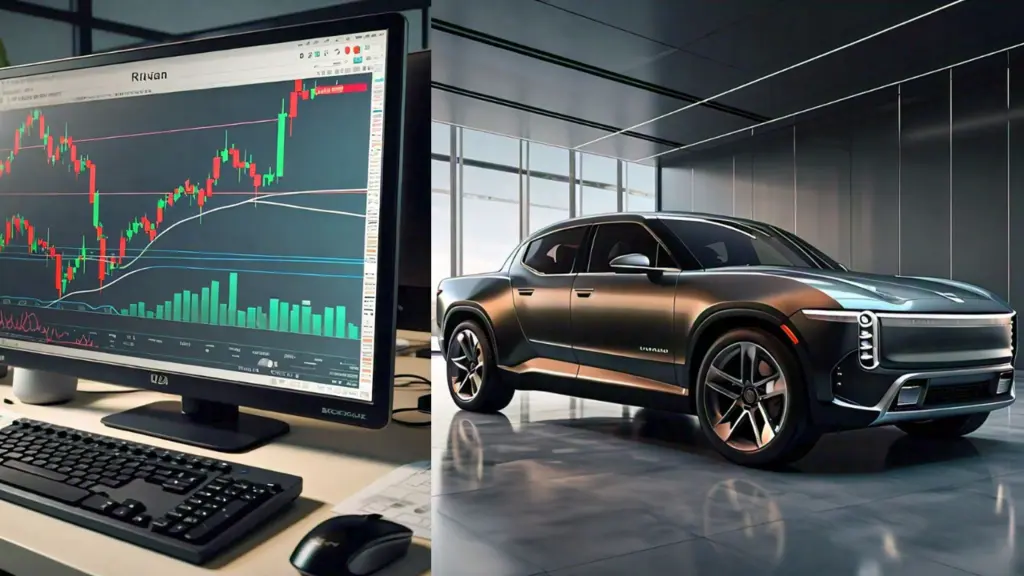Introduction
The electric vehicle (EV) market is one of the most dynamic and rapidly evolving industries today. Among the new players in the electric vehicle sector, Rivian Automotive Inc. has garnered significant attention since its inception. As investors and analysts have closely monitored the company’s growth, FintechZoom Rivian stock has become a focal point in discussions surrounding the future of electric vehicles. This article takes a deep dive into the performance, potential, and outlook for Rivian stock, examining the key factors driving its success and the challenges it faces.
What is Rivian Automotive Inc.?
Rivian Automotive Inc. (NASDAQ: RIVN) is an American electric vehicle manufacturer founded in 2009 by RJ Scaringe. The company focuses on producing electric trucks, SUVs, and delivery vans, with a particular emphasis on outdoor adventure and sustainability. Rivian gained widespread recognition in 2021 with the launch of its all-electric pickup truck, the R1T, and the R1S SUV. Additionally, the company has partnered with Amazon to supply electric delivery vans, making Rivian a significant player in the EV space.
The company went public in November 2021 with a highly anticipated IPO that saw its stock skyrocket. Despite challenges in production and scaling, Rivian has attracted attention from investors due to its innovative approach to electric vehicles and its potential to disrupt the automotive industry.
The Importance of FintechZoom Rivian Stock
FintechZoom Rivian stock has become a key topic of interest for investors seeking opportunities in the electric vehicle market. As Rivian is one of the few major EV manufacturers to go public in recent years, its stock offers a unique opportunity for those looking to tap into the rapidly growing EV sector.
FintechZoom, a leading financial news platform, provides comprehensive coverage of market trends, stock analysis, and investment insights. Rivian’s stock has been a hot topic on this platform due to its fluctuating performance, potential for growth, and the volatility that often characterizes emerging tech stocks. For those looking to make informed decisions, understanding the stock’s movement, the factors influencing its price, and the broader EV market is crucial.
The Performance of FintechZoom Rivian Stock
Since its IPO, Rivian’s stock has experienced significant volatility. On its first day of trading, the stock price surged by more than 29%, reflecting strong investor interest and high expectations. However, Rivian’s stock has faced a series of ups and downs, with fluctuations influenced by production delays, changes in leadership, and the broader market trends surrounding EV companies.
Several factors have contributed to the volatility of FintechZoom Rivian stock, including:
1. Production Delays
Rivian has faced numerous challenges in scaling its production capabilities. Initial estimates for vehicle deliveries were ambitious, but the company has struggled to meet these targets due to supply chain disruptions, manufacturing delays, and difficulties ramping up its production lines. These issues have led to concerns among investors about the company’s ability to meet demand and achieve profitability in the near future.
2. Market Competition
The electric vehicle market is highly competitive, with established players like Tesla dominating the space. Additionally, traditional automakers such as Ford and General Motors are investing heavily in electric vehicles, increasing the level of competition Rivian faces. Rivian’s success depends on its ability to differentiate itself from competitors by delivering high-quality, innovative products that appeal to a broad customer base.
3. Financial Health
Rivian’s financial performance has also been a key consideration for investors. The company has yet to turn a profit, which is common among new startups in capital-intensive industries like automotive manufacturing. Rivian has relied heavily on investor funding, raising billions of dollars through its IPO and other funding rounds. Investors have been closely monitoring the company’s cash flow, burn rate, and ability to achieve profitability in the long term.
4. Partnerships and Collaborations
Rivian’s partnerships have played a significant role in shaping its stock performance. The collaboration with Amazon, one of the largest e-commerce companies in the world, has provided Rivian with a significant revenue stream and credibility in the market. The electric delivery vans developed by Rivian for Amazon are expected to contribute to the company’s revenue and help build a strong foundation for future growth.
Factors Driving the Growth of FintechZoom Rivian Stock
While there have been challenges, there are several key factors that could drive the growth of Rivian’s stock in the future.
1. Electric Vehicle Market Growth
The electric vehicle market is experiencing rapid growth as consumers and governments shift toward more sustainable transportation options. With increasing demand for EVs, Rivian is well-positioned to benefit from this trend, especially if it can scale its production and meet delivery targets. As more countries introduce stricter emissions regulations and offer incentives for EV adoption, Rivian’s products may become more attractive to consumers.
2. Innovative Product Offering
Rivian has differentiated itself by focusing on adventure-oriented electric vehicles. Its R1T electric pickup truck and R1S SUV appeal to outdoor enthusiasts who want the performance and capabilities of traditional gas-powered vehicles but with the benefits of electric powertrains. Rivian’s focus on sustainability, innovation, and adventure could give it an edge in attracting a loyal customer base.
3. Strategic Partnerships
Rivian’s partnership with Amazon is a significant driver of growth. The electric delivery vans developed for Amazon are expected to provide steady demand for Rivian’s vehicles. This collaboration also lends credibility to Rivian, which is crucial in a market where trust and reliability are key concerns for customers.
4. Strong Leadership
Rivian’s CEO, RJ Scaringe, is highly regarded for his leadership and vision. Scaringe has a background in engineering and a strong commitment to sustainability, which resonates with investors and consumers alike. Under his leadership, Rivian has been able to attract significant investment and build a brand that focuses on both performance and environmental responsibility.
Rivian Stock Price Predictions: What Analysts Are Saying
While predicting the future of any stock is challenging, analysts have varied opinions on the future performance of FintechZoom Rivian stock. Many analysts are optimistic about the long-term growth prospects of the company, citing the potential of the EV market, Rivian’s innovative products, and its strategic partnerships. However, others caution that Rivian faces significant risks, including intense competition, production challenges, and financial volatility.
Some analysts have set target prices for Rivian’s stock, with predictions ranging from modest gains to more substantial increases, depending on the company’s ability to overcome challenges and scale production.
Key Risks for Investors
While Rivian holds significant promise, there are several risks that investors should be aware of:
1. Production and Supply Chain Issues
Rivian’s ability to scale production remains a critical factor for the company’s success. The automotive industry is notoriously difficult to navigate, with supply chain issues and manufacturing challenges often impacting timelines and delivery targets.
2. Intense Competition
As mentioned, Rivian faces intense competition from both established automakers and newer EV startups. Competing with companies like Tesla, Ford, and General Motors could be difficult, especially as these companies have more experience and established brand recognition.
3. Financial Sustainability
Rivian’s current financial position requires careful attention. The company has yet to turn a profit, and investors should monitor its cash flow and burn rate closely to assess whether it can sustain operations in the long term.
FAQs about FintechZoom Rivian Stock
Q1: Is Rivian stock a good investment? A1: Rivian stock presents both opportunities and risks. Investors should carefully assess the company’s growth potential, competitive position, and financial health before making an investment decision. While the EV market is expected to grow significantly, Rivian faces challenges in scaling production and competing with established players.
Q2: What is the future of Rivian stock? A2: The future of Rivian stock depends on several factors, including its ability to scale production, meet delivery targets, and compete effectively in the EV market. Analysts have mixed opinions on the stock, with some predicting strong long-term growth and others highlighting potential risks.
Q3: How does Rivian compare to Tesla? A3: Rivian and Tesla are both electric vehicle manufacturers, but they differ in their product offerings and market strategies. Tesla is a more established player with a wider range of vehicles, while Rivian focuses on adventure-oriented electric trucks and SUVs. Tesla also has a more robust production infrastructure, which gives it an edge in terms of scalability.
Q4: Should I buy or sell Rivian stock? A4: Whether you should buy or sell Rivian stock depends on your investment goals and risk tolerance. If you’re looking for exposure to the EV sector, Rivian may be a compelling option, but be mindful of the risks and volatility associated with the stock. Consulting with a financial advisor is recommended.
Q5: How can I track Rivian stock performance? A5: You can track Rivian’s stock performance through financial news websites like FintechZoom, stock market platforms, and brokerage accounts. These platforms provide up-to-date information, including price movements, news, and analyst reports.
Conclusion
FintechZoom Rivian stock represents a unique opportunity in the electric vehicle market. The company’s innovative products, strategic partnerships, and focus on sustainability make it an attractive investment for those looking to tap into the growing EV industry. However, challenges such as production delays, intense competition, and financial volatility must be carefully considered before making an investment.



